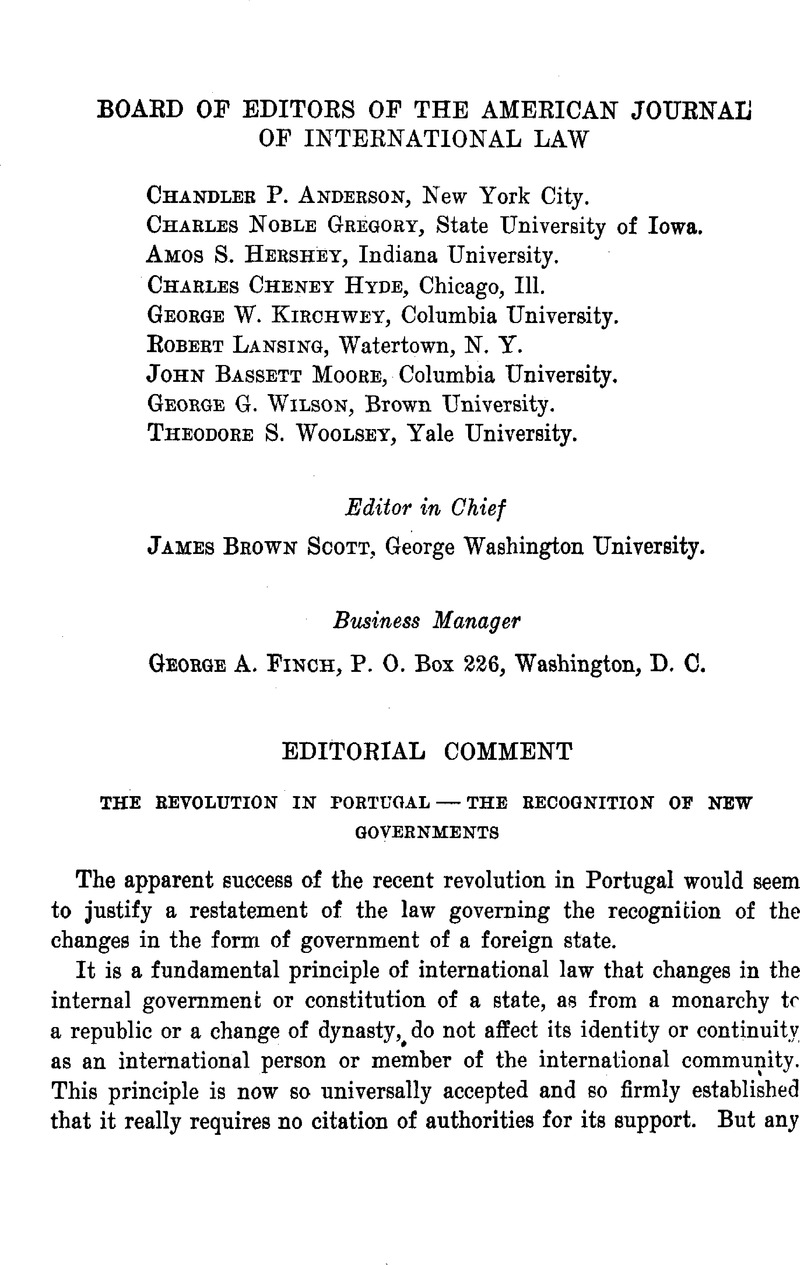No CrossRef data available.
Published online by Cambridge University Press: 04 May 2017

1 Bluntschli, Arts. 39-45; 1 Calvo, §§ 99-104, 182-83; Creasy, 99-110; 1 Despagnet, Cour, etc., (recent ed., 1910) Nos. 87-88; 1 Fiore, Nouveau Traité, Nos. 321-331; Field, Code, Art. 19; Hall (6th ed.); 1 Halleck (Baker’s 3d ed.), 90; Holtzendorff in 2 Holtzendorff’s Handbuch, 21-23; 1 F. de Martens, Traité, § 65; 1 Moore’s Digest, §§ 78-79; Phillimore, Pt. II, ch. 7; 1 Piedelievre, Nos. 135-42; Pomeroy, §§ 68-75; 1 Oppenheim, §§ 76-77; 1 Pradier-Fodéré, Nos. 149-155; 1 Twiss, §§ 18-21; 1 Rivier, 62-63; Ullmann, § 35; 1 Westlake, 58-59; Wheaton, §§ 28-32; and Woolsey, §§ 39-40.
2 For the practice of the United States in such cases, see 1 Moore, Digest, §§ 43-58, more especially pp. 120, 126, 139.
3 See Scott, pp. 38, 40 and 44, for citation of numerous American and English cases on this point. See especially the Republie of Peru v. Dreyfus (1888), L. R. 38 Ch. D., 348, and the Republic of Peru v. The Peruvian Guano Co. (1886), L. R. 36 Ch. D., 489, referred to on pp. 38 and 40.
4 Political treaties or alliances form another possible exception. Authorities are not agreed upon this point. There will undoubtedly be a, strong temptation to violate or ignore such political obligations as would be difficult or impossible of execution under the changed political conditions surrounding the new regime.
5 1 Moore, Digest, pp. 249 and 252. For the full history of the French indemnities paid to citizens of the United States, see 1 Moore, Int. Arbitrations, 4399-4485.